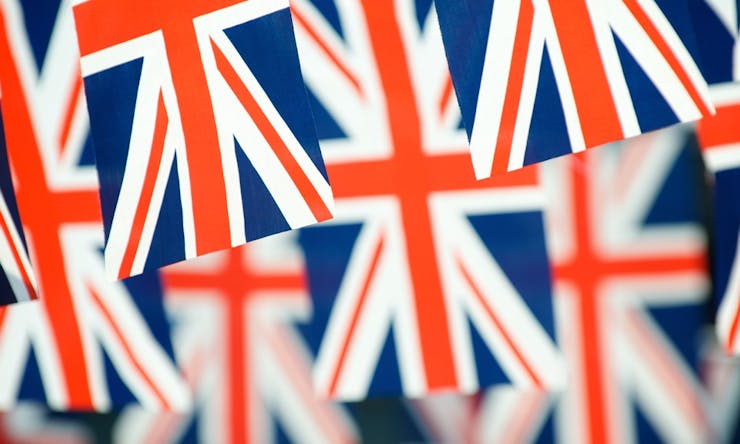Residents of the United Kingdom have been watching from afar as legalization sweeps across the globe. Uruguay legalized cannabis, the United States followed suit in a piecemeal fashion, and now Canada’s new Prime Minister has made it all but certain that they will be next to legalize. With progress happening elsewhere in the world, where does the United Kingdom stand on ending cannabis prohibition?
A Tumultuous Past
An interesting tidbit of information sheds light on the murky past of cannabis in the UK. Although it was deemed illegal in 1928 as an addition to the Dangerous Drugs Act of 1920, doctors were allowed to prescribe cannabis for various medical ailments until 1971. In 1971, the Misuse of Drugs Act created the Class A, B, and C classification systems as a means to control substances. Cannabis was now classified as a Class B drug along with amphetamines, with less severe penalties than those for harder drugs such as heroin or LSD.
There have been several proposals to reclassify cannabis as a Class C drug, but to no avail. As time progressed, the number of cannabis related arrests skyrocketed – in 1945, there were just four cannabis prosecutions, but by 1973, there were more than 14,000. The numbers increase exponentially from there to 20,746 in 1984 and, a decade later in 1994, the figure more than doubled to 72,392 cannabis arrests.
In the meantime, mainstream attitudes are shifting towards embracing cannabis in the United Kingdom. For a brief period between 2004 and 2009, cannabis was classified to be Class C, meaning that it would carry no criminal penalties and was considered less harmful than the drugs categorized in Class B. However, the home secretary Jacqui Smith returned cannabis to a Class B drug after then-Prime Minister Gordon Brown warned of stronger, “skunk” cannabis that dominated the black market.
Petitioning for Change
A petition started by James Richard Owen to “make the production, sale and use of cannabis legal” has been circulating, having already received more than 227,000 signatures to date. By law, any petition that accumulates more than 100,000 signatures must be reviewed by Parliament. After some reluctance, the members of Parliament conducted their debate on October 12, 2015. The debates were long and impassioned on both sides and included evidence of medicinal and therapeutic benefits, debating the effect of cannabis on individuals with mood disorders, and exploring the possible revenue from a legal market. Each argument was laid out on the table, but the real champion here was Labour MP Paul Flynn, who made a very convincing case for ending the War on Drugs before the court adjourned:
"Prohibition increases drugs use, harm and crime. It builds empires of criminals as the alcohol prohibition did in America in the twenties.
"The good news is that the world has recognised the futility, waste and cruelty of prohibition.
"The criminal, irresponsible black market is being replaced by decriminalised regulated markets that can reduce drugs harm and use and liberate the sick to use the world's most ancient medicine.
"The bad news is that UK has the worst of all worlds. We waste billions on arresting and imprisoning cannabis users for a taking a substance that is less harmful than alcohol."
As citizens began to ponder the possibility of legalization, the government quietly investigated the opportunity as well. A leaked Treasury study ordered by the Liberal Party examined the financial aspects of a legal cannabis market, with 216 tons of cannabis smoked in the UK last year and 2.2 million people between the ages of 16-59 who are thought to have used cannabis during that time creating a projection of a £1.25 billion market. That may be a bit of an overestimation, but even so, the report also found that legalization would save £200 million in court costs.
Shop highly rated dispensaries near you
Showing you dispensaries nearTrending Pro-Cannabis
While some sign petitions, others have a more unique approach to spreading the word for legalization. A group known as “Feed the Birds” have taken it upon themselves to distribute hemp seeds to the masses at least once a year on April 20th in Hyde Park in London. They’ve also been known to plant rogue gardens – little cannabis sprigs have been popping up in public planters and parks all over British cities.
According to an Ipsos poll conducted in 2013, more than 53 percent of respondents supported cannabis legalization or decriminalizing cannabis possession, and another 67 percent wanted a comprehensive review of all possible policy options – whether that means a legally regulated market or tougher penalties. With all of that support, why is the UK. government dragging their heels on this particular policy?
Paul Flynn believes that the phenomena is similar to the United States’ stubborn reluctance to address gun control policy, despite the overwhelming support for stricter gun laws. “Most of the rest of the world is baffled by our refusal to reform," said Flynn, and the UK has been left behind by many other seemingly more progressive countries, like the United States.
Luckily, Flynn has gained the support of the Liberal Democrats, who are creating an independent panel of experts to determine how a legalized market would work in the United Kingdom. The panel includes former government drug advisor professor David Nutt.
So will the United Kingdom be legalizing cannabis tomorrow? Probably not. The truth of legalization is that it’s a complicated and timely process that requires the utmost attention to detail. Could the UK legalize soon? Most definitely, but it depends on shifting attitudes and politicians who aren't afraid to advocate for change.





